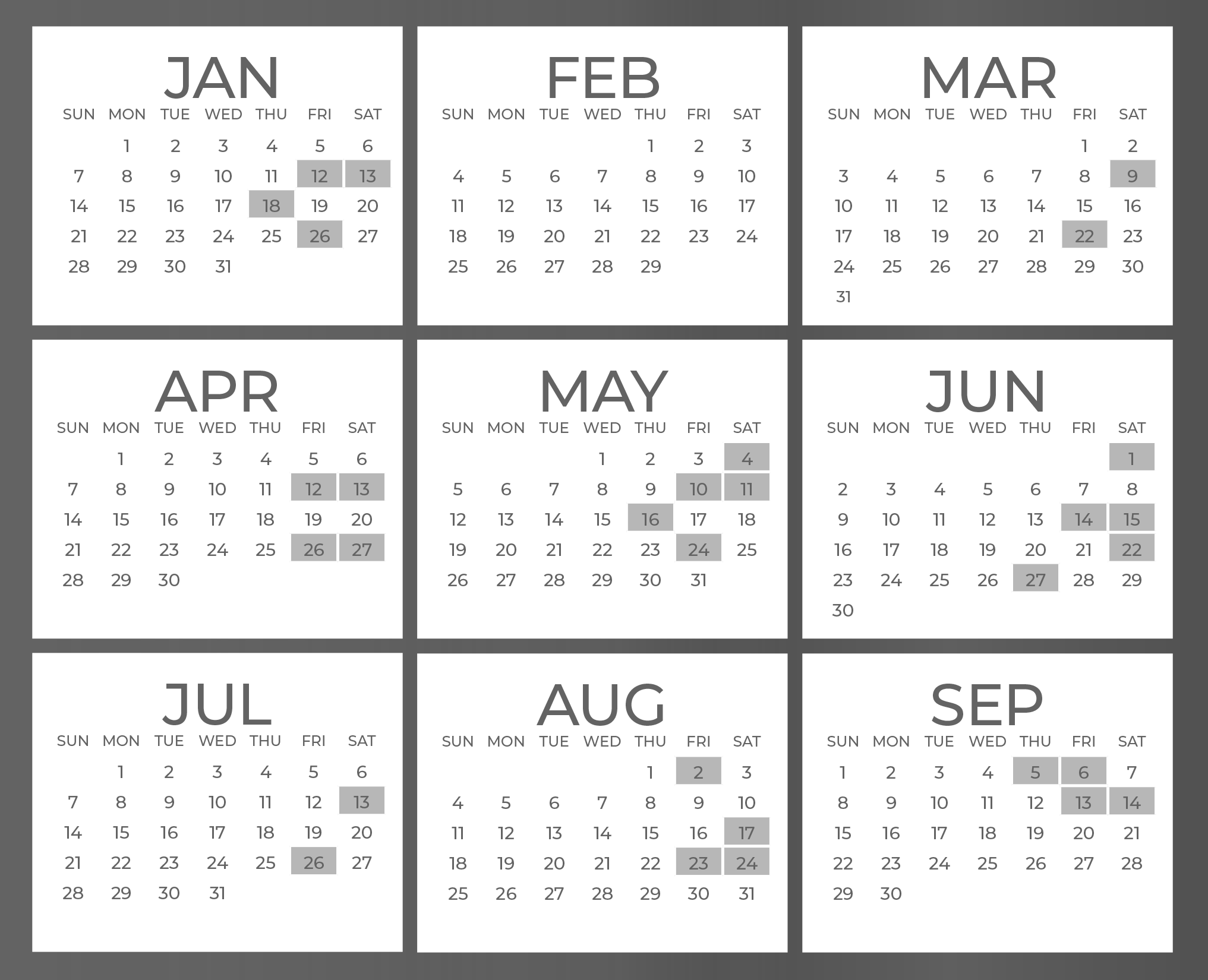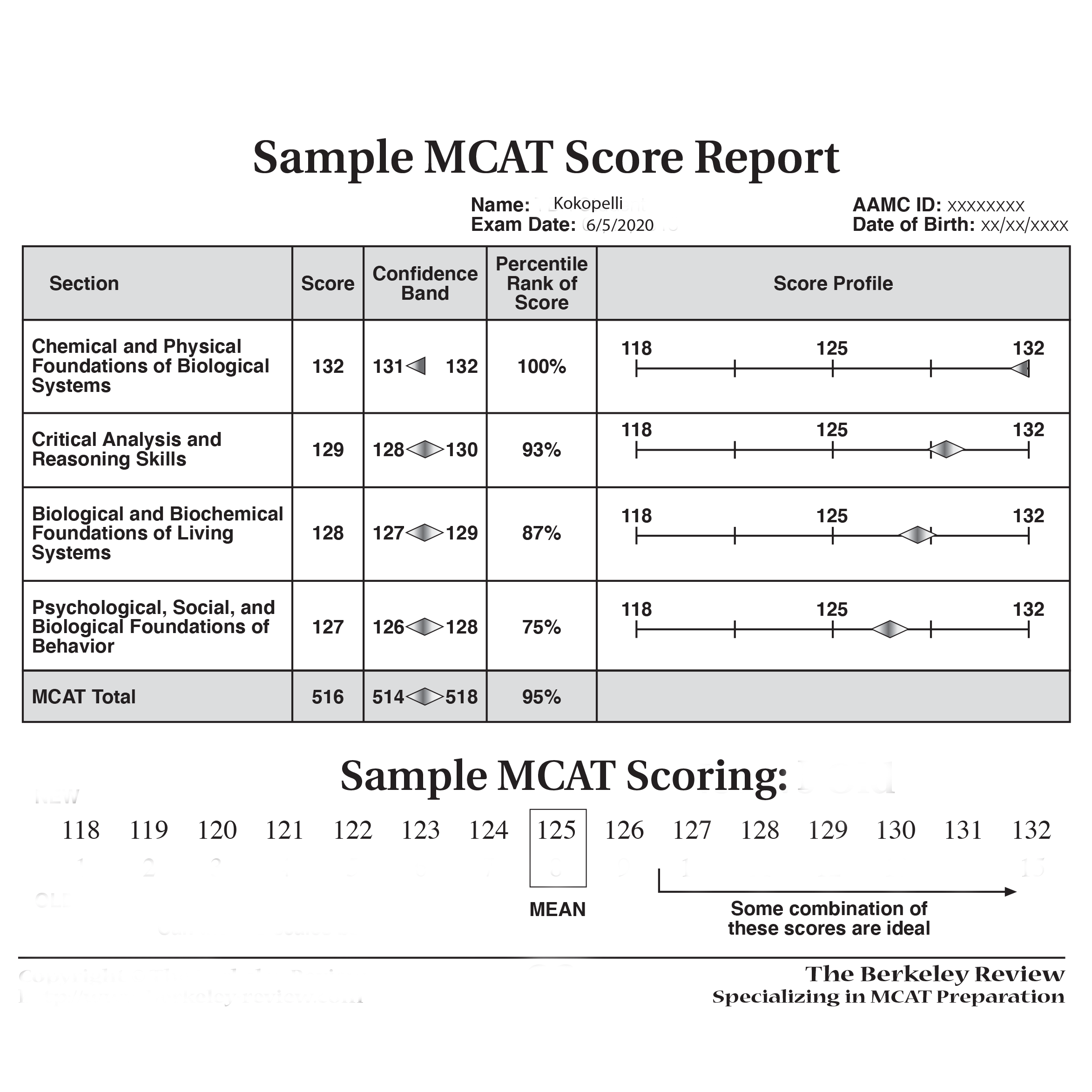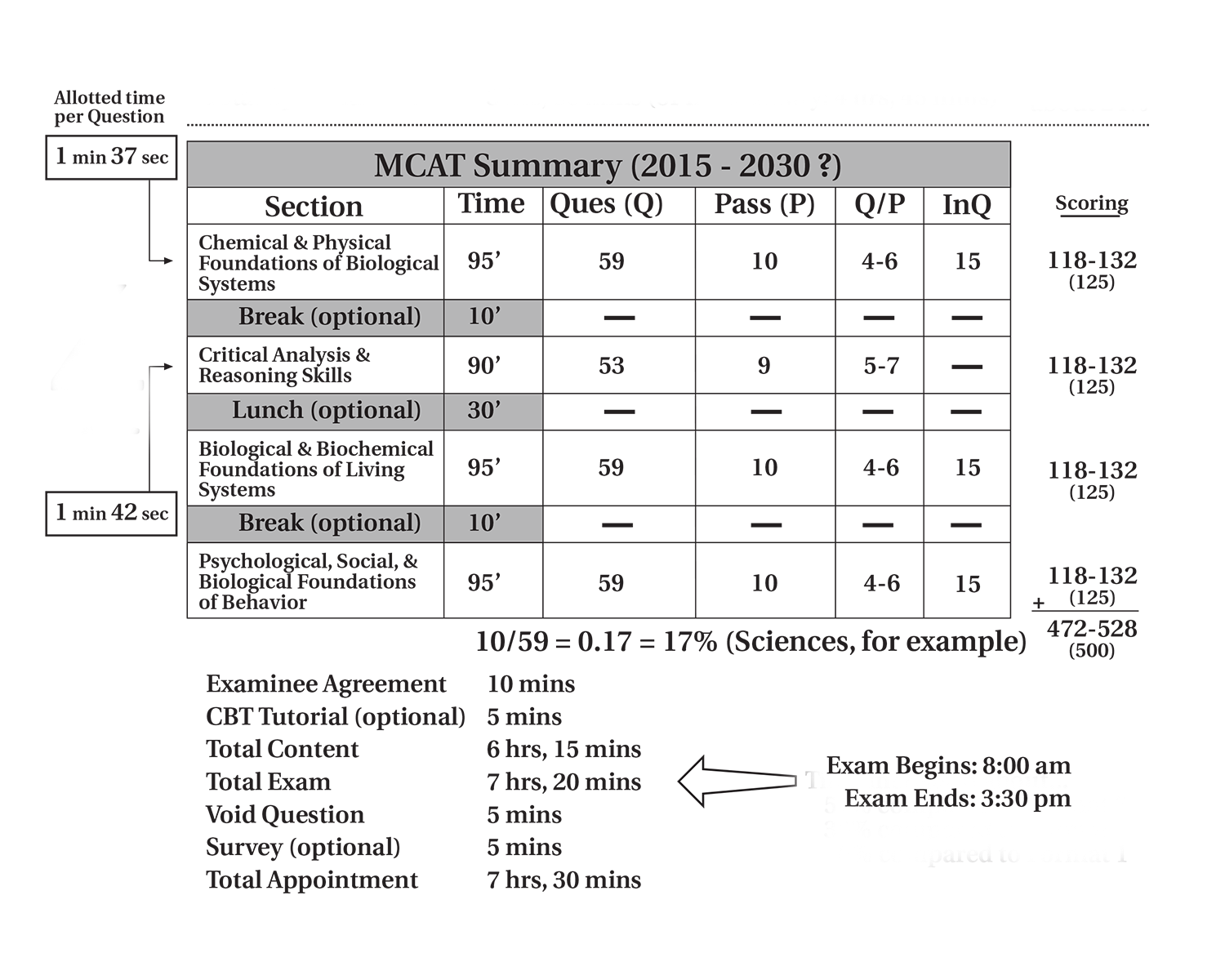The MCAT
The Medical College Admission Test (MCAT), which is owned and developed by the Association of American Medical Colleges (AAMC), assesses skills and concepts identified by medical educators as those required to practice medicine: basic skills in reading and the ability to think critically and to solve scientific problems involving fundamental concepts of physics, biology, general chemistry, organic chemistry, biochemistry, psychology, and sociology.
The MCAT is protected by copyright. Results of this standardized test are the property of the AAMC. They are released only to the examinee and to those persons or institutions authorized to receive them by the examinee. Since 2015, the test is administered multiple times a year at testing centers nationwide, starting at 8:00 am and finishing in the mid-afternoon. The total content test time for 2015+ MCATs is 6 hours, 15 minutes, while the total seat time is 7 hours, 30 minutes.
MCAT Test Dates:
The AAMC advises students to take the MCAT on one of the multiple test dates of the year before the one in which they plan to enter medical school (i.e., about twelve to eighteen months in advance). Most institutions prefer the longer lead time for processing applications afforded by the earlier test dates (i.e., during the winter and spring months), but summer test scores are available in time to meet the application deadlines of most schools. The AAMC publishes a handbook listing application requirements for all United States medical schools, as well as practice materials for the MCAT.
The Berkeley Review recommends allowing plenty of time to study for the MCAT. Students have to balance maintaining a high GPA, full time work, extracurricular activities, and several other responsibilities that coincide with preparing for the MCAT. We find that students who plan ahead and follow a disciplined study schedule, not only score higher on the exam, but are able to keep up with the other aspects (e.g., research, grades, etc.) that make their medical school application competitive.

2024 Exam Dates

Scoring the MCAT:
Raw MCAT scores for each section of the test are converted to scaled scores for reporting. Scaled scores are normalized for each administered test to total between 472-528 scaled points. Scaled scores make it possible for admission committees to compare scores from different test versions.
Admission committees of each medical school assign their own relative weight to MCAT test results–along with grade averages, letters of recommendation, and personal interviews–to guide their selection of candidates. Standardized test scores are one quantitative measure designed to make the evaluation of grades and other credentials a fair process. They also allow medical school candidates to focus on the academic areas in which they need to further study.
MCAT Score Report:
The AAMC releases test scores one month after each test is administered. Scaled scores from each of the 4 sections are reported along with the total MCAT score. The score report for each section also displays the confidence band and the score’s percentile ranking.
The Berkeley Review’s focus is to push students to achieve their maximum potential score. We have high expectations of ourselves and our students. We take pride in our work and want all of our students to experience the thrill of opening a stellar score report. To do this we have spent almost 30 years developing review products and study curriculums – keeping in mind every student has a unique learning style and every student dedicates different blocks of study time for the MCAT.


MCAT Breakdown by Section:
The MCAT consists of four sections; Chemical & Biological Foundations of Biological Systems; Critical Analysis and Reasoning Skills (CARS); Biological & Biochemical Foundations of Living Systems; and Psychological, Social, & Biological Foundations of Behavior. Each section is made up of 10 passages (9 for CARS). Sections are associated with 4-6 relevant questions (5-7 for CARS). Each section also contains 15 independent free standing questions (CARS section is only passage based questions).
The Berkeley Review’s home study material and lecture based curriculum is designed so students can identify trouble topics and divert effort in a way to raise their score in all sections of the exam. Our materials provide high levels of detail needed to master concepts, as well as diagnostic tools to identify when it’s time to move on.
